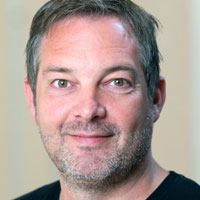Harm van Beek appointed Endowed Professor of Digital Forensics
Digital forensics
In their daily casework, investigative agencies encounter significant amounts of digital evidence, reflecting the increasing digitalisation of society. Emails, chats, photos and camera images, for example, can provide crucial evidence in court cases, helping in the fight against subversive crime. The law places strict requirements on how this evidence is collected and used, and this is carefully assessed by public prosecutors, judges and lawyers.
Knowledge about app functionality and how mobile devices and related technologies work, along with awareness of the implications of their use, is crucial for a thorough understanding of digital traces. Since people leave digital footprints almost constantly, substantial amounts of traces can be found in every criminal case. But how do you find that one relevant email? To facilitate this, there is an increasing reliance on automation, including the utilisation of AI algorithms. It is understood that these methods and techniques must meet the strict requirements of criminal law.
Endowed Chair in Digital Forensics
The Endowed Chair in Digital Forensics is focused on research into methods and techniques that can be used for the automated gathering and interpretation of digital traces for the purpose of investigation and submission of evidence in court. The chair’s research explores the areas where criminal law, computer science and information science converge. 'There is the legal reality and the technical reality,' says Harm. 'The two do not always match up. Where there is no overlap, that is where the challenges lie.' His appointment will take effect from 1 September 2024.
Collaboration between Open Universiteit and NFI
By inaugurating this chair and enlisting a PhD student, the NFI and the Faculties of Science and Law of the Open Universiteit aim to unite their efforts. Strengthening the core elements of applied forensic science will support investigations and the presentation of evidence, working in partnership with NFI digital forensic examiners. Harm: 'By combining the efforts and expertise of legal practitioners and technical experts in digital forensic matters, we can establish an even stronger basis for digital forensics in criminal cases.'
The NFI is one of the world’s leading forensic laboratories. The NFI has expertise in nearly forty forensic disciplines, all under one roof. Through forensic research, the transfer of knowledge and innovation, the NFI provides assistance and advice with regard to investigations and fact-finding in criminal investigation cases to a wide range of national and international clients.
About Harm van Beek
Dr. Harm van Beek (1975, Westerhoven), studied Computer Science at Eindhoven University of Technology and obtained his PhD from the same university in 2005 with the thesis 'Specification and Analysis of Internet Applications'. While studying, he and two fellow students founded ISAAC, a company dedicated to developing middleware and software for the internet. In 2009, he joined the Netherlands Forensic Institute, where, among other things, he founded Hansken, the open digital forensic platform. Hansken helps investigative agencies to examine digital evidence, from computers and smartphones, for example, quickly and efficiently.
Harm combines his professorship with his position as senior digital forensic scientist at the NFI.

Dr. Harm van Beek
